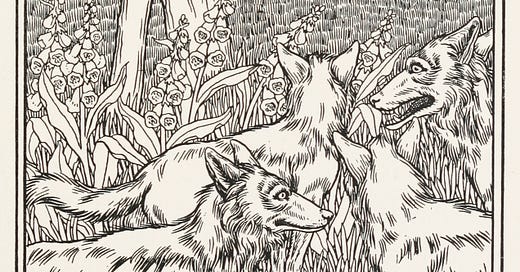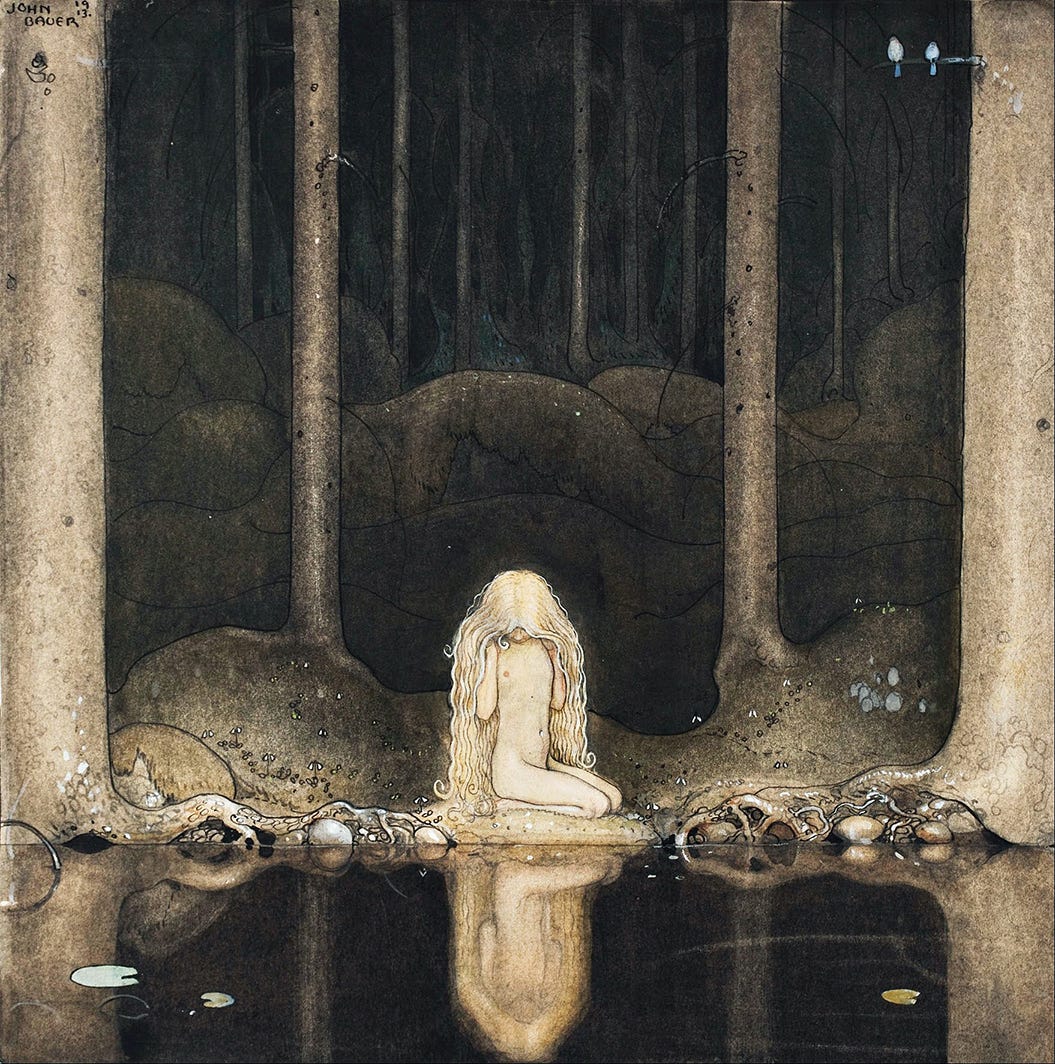Early last evening I looked outside and saw that the curtain of night had descended. Although the days here in Florida are nearly always sunny, with daily temperatures still reaching into the eighties, the abrupt nightfall surprised me, as did the sense of melancholy that came with it. Now it’s morning and I’m sitting on my little patio. I can hear music coming from inside my cottage intermingled with birds chattering and the cacophony of shouts and thuds from the high-school, which is next door to my place. I am surrounded by winding streets. The morning traffic sounds like ocean waves without discernible rhythm.
I’m immersed in book revisions and it feels like I’m underwater, clinging to this monumental task as everything else (class work, teaching, committee duties, social engagements, watering my plants, feeding my cat, feeding myself, papers that need writing, books that need reading, sleep that must be slept) floats towards and away from me. In some moments I’m overwhelmed. In others, I’m in a flow-state. It’s been over two weeks since I’ve closed all of my social media accounts and over a week since I decided to forego watching any media at all. The texture of my life is both softer and more abrasive. Without the distractions of TV shows, streaming services, and social media I find myself working more and asking: what is my life except for work? And: how do I rest without the dissociative nature of these types of media?
In the past couple weeks I’ve read several books. What I mean is: I have really read these books. For the first time in years I feel as if I’m relearning how to drop into a text without checking my phone or “taking a break.” Surprisingly I feel a kinship with my younger self, who used to read all the time. My younger self surfaces from a long slumber and asks me if I remember why I loved books so much. I answer: Yes. I feel the connection with the writers themselves. I laugh out loud. I cry. I remember this engagement, so different than my engagement with my phone or television shows or even films.
Because I am working on the last set of revisions for my book, my work is slow. I’m throwing out so many scenes and moments I’d once considered vital to the story I was telling. Long ago, at the beginning of my writing career, a mentor told me to let a first draft be bad. “Throw everything in there,” he said. So, my first draft (written over three years ago) was nearly 150k words. I didn’t yet have a clear idea of the story I was telling, nor did I fully understand who I was at that time, and how important this sense of “who am I” in the current moment was to the telling of the story. This is my fourth revision, and with each pass I more clearly see the entire book as a kind of sieve. What falls through like water and what remains? Sensing into this is like some mystical practice for me.
My book is a memoir about the seven years I spent as a wildland firefighter. It’s also a historical narrative engaging with the colonization of the United States and the development of federal agencies like the US Forest Service and Park Service, specifically how the former agency became a fire-suppression apparatus and stole the cultural and land-tending element of fire from Indigenous Americans (and how many are currently fighting to get this (and their land) back). To tell this story, I must also elucidate for my reader the importance of anthropogenic (human-caused) fire to nearly all ecological landscapes in the US as well as the ecological histories of these landscapes. My book is also about the hyper-masculine and militaristic culture within these agencies and wildland fire in general, through both a microscopic and societal lens. It’s also about my own addictions and inherited/experienced trauma, my family lineage of white settlers, and my mother’s death by suicide. Everything is intertwined.
The connective element is narrative voice. For all of these overlapping stories and personal experiences and histories to make sense in one book, I must find the overlapping meanings and weave them together to create a shared understanding. All of these things happened separately, all happened simultaneously, all are happening now and have happened, and I am part of it all, but I am not at the center of it all.
In Vivian Gornick’s book The Situation and the Story, she writes,
“A memoir is a work of sustained narrative prose controlled by an idea of the self under obligation to lift from the raw material of life a tale that will shape experience, transform events, and deliver wisdom.”
“The question clearly being asked in an exemplary memoir is ‘who am I?’ Who exactly is this ‘I’ upon whom turns the significance of this story-taken-directly from life? On that questions the writer of the memoir must deliver. Not with an answer but with a depth of inquiry.”
For me, in this book, I am partially examining my resistance (both then and now) to the superficial ways in which I was (and am) expected to perform “woman” in a male-dominated profession and misogynist culture. I am also asking: how was I (and am I) engaging with the world as a white descendant of settlers who came west and claimed land that was already occupied? How have these white-supremacist and misogynist ideals bloomed within me? How did I wield power and how was power wielded against me? I examine these questions as an ambivalent nonbinary person, as a neurodivergent person, as a disabled person, and as someone who both carried trauma and is also capable of inflicting trauma on others.
Gornick mentions Willa Cather’s definition of the “inviolable self.” In my words this inviolable self is the observer, the witness. The part of us that watches without judgement. The most unbreakable part of ourselves. Interpreted through my own religious lens, which is Buddhist, this is the most enduring self, and the most wise.
The way I see it, a memoir examines the tension between the inviolable self and the world. The tension between who the world thinks you are and who you are. But also: the tension between who you are and who you think you are.
For a long time I’ve thought of my narrative positioning as where I am standing in a moment. But through the act of revision after revision I now understand that it’s not where I am that matters, but who I am now, and how I am making meaning of who I was then, with the purest empathy and the most brutal honesty.
It’s not an easy task. To do this one must have a laser focus; one must see the entire work as a whole while also zooming into each scene and each moment. One must discard so many of the moments that once seemed essential, because one realizes they aren’t essential to the reader at all. Many of those moments, for me, are scenes or context that explain away the negative and/or harmful aspects of who I was at any given moment. The instinct (at least for me) in memoir is to say: “Wait! I know I did that strange/bad/stigmatized/mysterious thing but this is why! Please love me.” If I indulge this instinct it inevitably weakens the story and my writing.
I am learning to tell the truth. To risk not being loved. My favorite memoirs, like Mary Karr’s The Liar’s Club, Maxine Hong Kingston’s The Woman Warrior, Lidia Yuknavitch’s The Chronology of Water, Michael Herr’s Dispatches, Kiese Laymon’s Heavy, Cheryl Strayed’s WILD, and Tobias Wolff’s This Boy’s Life (to name only a few) succeed in doing this. Despite the flaws of the writers themselves, rendered in empathetic truth, I love them all.
When I sent my last set of revisions out to my editor and to beta readers, the message I got was: we’re on your side. This is what I hold dear. This is what helps me see the flaws and work through them.
I can only speak for myself when I say that I am always on the side of a truly honest and reflective narrator in personal nonfiction. But also, as Gornick points out in The Situation and the Story, there is a second story being told in any work of personal nonfiction, and that story exists in what the writer cannot see. In the silences throughout the text. In how the narrator is seeing themselves and the world, and the tension of what they cannot yet interpret.
I know I can’t see everything, but I must be absolutely clear about what I can see. No one can see themselves entirely.
Another mentor of mine, George Saunders, who was my thesis advisor at Syracuse (and has a wonderful Substack) also taught me an essential key to revision, which is to calibrate every sentence and scene and moment on an energetic meter. What holds the most energy? This calibration is totally intuitive and requires a writer who knows their work (and especially the work they’re revising) intimately. It requires a well-read writer who has engaged and continues to engage deeply with writing both new and ancient, of all genres and origins.
I’m here for it all. On some days I may feel like the very fibers of my current self are disintegrating, yet I sew those fibers together tightly when I come to the page. This is, I think, the strength that writing can give us, and the gift of good writing. My only hope for my book is that others see themselves in my story, and not just their lovable kind selves but also the parts of themselves they’ve rejected and hidden in shame. this is what my favorite books have done for me. This is what a well-rendered poem or story or essay or book does. It’s not only a text but a transmission from across time and space which says I see you.
Tell me: what are you working on in writing and/or life? Where are you finding yourself on the page? What resonated in these words for you? I hope something does.
If you learned something or found something of value here, please consider becoming a paying subscriber.







I love this idea of two different stories - the one you know you are telling, and the one the reader will interpret from what you as the writer don't know or understand. I feel a need to think on that because one of my learning edges right now is finding a way to accept that I can't include absolutely everything. I can't learn about every single question that comes to me through reflecting on words I just wrote. At some point, it's necessary to accept that every written work is necessarily limited in scope to the awareness of the person who created it. I'm having a hard time accepting that.
I'm also really looking forward to reading your book. It sounds fascinating, and your time as a firefighter and your interest in Indigenous fire management is an extra bonus. I listened to an Ologies podcast about this a few months ago, and am fascinated by how different the reality is from what we're taught to assume about fires.
This is some of the most powerful advice I’ve read yet about writing memoir. I’ve been told to write about the thing you can’t not write about because you can’t get it out of your head. That thing is generally the story that carries the most fear or shame for the writer. Will people still love me? Will they understand why I did this things? This so resonates with me. I’ve also saved your list of great memoirs as I’ll be reading through them. I also look forward to reading anything that you write.